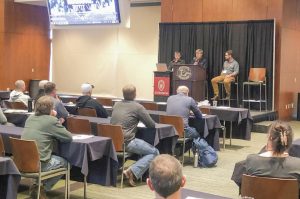
The “Formula Act,” H.R. 8351, would waive U.S. tariffs on infant formula imports through the end of 2022 to ensure that the domestic market has the supplies of formula it needs as it recovers from an acute processing capacity crisis that’s created nationwide infant-formula shortages.
“The United States has experienced a dire and highly unusual shortage of infant formula for much of this year, a temporary crisis that’s dragged on way too long but appears to be improving” said Jim Mulhern, president and CEO of the National Milk Producers Federation. “As of this month, all U.S. formula production facilities are back online and working hard to restock the supply chain gaps that American families have struggled with over the past several months. That’s good news.
“U.S. government efforts to expand supply, including a temporary, short-term expansion of infant formula imports, are important steps to help ease the crisis. We support congressional action on the Formula Act. The legislation’s targeted focus and ample timeframe will address these short-term challenges while ensuring that the United States doesn’t create a permanent dependence on formula produced in foreign facilities. As the pandemic showed, long-term reliance on sourcing critical life-saving products from overseas puts American families at the mercy of foreign suppliers and foreign safety standards.”
“In addition to advancing the Formula Act, Congress and the Biden Administration should work together with the U.S. dairy and formula industries to explore what additional domestic policy reforms are needed to further expand U.S. infant formula production capacity so that this country can create the most reliable supply base for this important product.”























